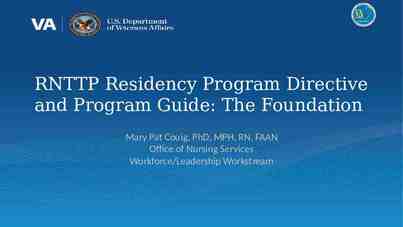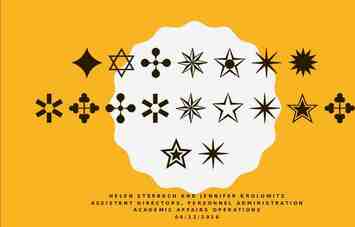Developing Standards for Linking Electronic Health Records and Vital
23 Slides681.51 KB

Developing Standards for Linking Electronic Health Records and Vital Records Systems: Opportunities and Challenges Hetty Khan Health Informatics Specialist Centers for Disease Control and Prevention National Center for Health Statistics Aug 18, 2010

Opportunity: Vital Records (VR) in Standards Development Activities Standards Development Organizations (SDOs) and other standards related groups are engaged in activities to develop and implement standards for electronic health record systems (EHR-S) Health Level Seven International (HL7) – clinical information systems Accredited Standards Committee (ASC) X12 – administrative data collection Integrating the Healthcare Enterprise (IHE) – interoperability among EHRs

Opportunity: VR in Standards Development Activities Vital Records Have established standards for VR data collection: Model Law 2003 U.S. Standard Certificate of Live Birth 2003 U.S. Standard Certificate of Death 2003 U.S. Standard Report of Fetal Death Collects much of the same data that are inherent in EHR-S mother’s and infant’s medical records serve as the source for more than ½ of all data items collected on the Birth Certificate and Fetal Death Report

Opportunity: VR in Standards Development Activities VR can serve as the bookends of a longitudinal EHR, beginning with birth and ending with death The Electronic Health Record (EHR) : is a longitudinal electronic record of patient health information is generated by one or more encounters in any care delivery setting includes patient demographics, progress notes, problems, medications, vital signs, past medical history, immunizations, laboratory data and radiology reports automates and streamlines the clinician's workflow has the ability to generate a complete record of a clinical patient encounter supports other care-related activities directly or indirectly Source: Healthcare Information and Management Systems Society (HIMSS) http://www.himss.org/ASP/topics ehr.asp

Opportunity: VR in Standards Development Activities VR can influence standards development for EHR systems for relevant data items assure that the data collected is consistent with national requirements Eliminate the need to retrofit VR requirements later

Opportunity: Mesh Clinical and VR Requirements Eliminate the silos that currently exist between clinical and VR requirements Identify where commonalities exist in clinical and VR data requirements Communicate the needs of the clinical and VR domains and come together where appropriate Develop a standard format that may be utilized by clinical systems that includes VR requirements

Example: Clinical Communication with Multiple PH Domains using Multiple Standards

Example: Clinical Communication with Multiple PH Domains using single standard

Example: Clinical Communication with PH Domains using single standard Early Hearing Detection and Intervention (EHDI) Program: supports the coordination of primary care providers and audiologists in referrals and evaluations of infants EHDI developed Content profile at IHE NCHS and Public Health Data Standards Consortium (PHDSC) will develop HL7 Public Health Functional Profile for EHR Systems with EHDI focus PHDSC and EDHI will develop certification and testing criteria for EHR Systems that are capable of exchanging data for EHDI

Opportunity: Utilize a Standard Format for VR to Communicate with EHRs Mother's Mother's Workshee Workshee t t Registrar Mother Birth Registration System (EBRS) Birth Information Specialist (Select items) Birth Certificate Birth Event Electronic Health Record Nurse Obstetrician CDC/NCHS State Department of Health

Opportunity: Utilize a Standard Format for VR to Communicate with EHRs Two HL7 projects supported by funding from CDC/NCHS : HL7 Vital Records (VR) Domain Analysis Model Identify the birth and death registration activities and data items utilizing an HL7 recognized format. Guide future design and implementation efforts for standardizing the electronic data exchanges between EHR and VR systems, NCHS and other public and private information systems HL7 EHR-S Vital Records Functional Profile (VRFP) Specifies the functional requirements needed to facilitate EHR systems capturing VR data at the point of care or point of contact and to enable interoperable electronic exchanges among EHR systems, VR systems and potentially other public information systems for birth, death and fetal death

Opportunity: Improve Data Quality and Timeliness Debates abound about the: Use of EHRs as a source for VR information Improvements in quality and timeliness of VR data Reductions in the redundancy of data captured

Opportunity: Improve Data Quality Interoperable data exchange between EHRs and VR systems may improve data quality For example: Race and Ethnicity data Method of Delivery Electronic Health Record Birth Registration System (EBRS)

Opportunity: Improve Data Quality and Timeliness Consider the eventual benefits of a longitudinal EHR for certifying the underlying cause of death Other public health data systems are getting on board with developing national standards for data transmission Immunization Registries Cancer Registries Newborn Screening Vitals? Let’s begin the process to determine lessons learned and how to improve the process and quality

Opportunity: Benefit from “meaningful use” of EHRs Recent activities to support meaningful use of EHRs using national standards may lead to increased use of EHR-S Final Rule: Issued on July 13, 2010 Initial Set of Standards, Implementation Specifications, and Certification Criteria for Electronic Health Record Technology http://www.ofr.gov/OFRUpload/OFRData/2010-17210 PI.pdf Identifies a set of core objectives that constitute an essential starting point for meaningful use of EHRs http://www.nejm.org/doi/pdf/10.1056/NEJMp1006114

Opportunity: PH Benefits from “meaningful use” of EHRs VR data items that are consistent with the meaningful use criteria: Record patient demographics (sex, race, ethnicity, date of birth, preferred language, and in the case of hospitals, date and preliminary cause of death in the event of mortality) Record vital signs and chart changes (height, weight, blood pressure, body-mass index, growth charts for children) Record smoking status for patients 13 years of age or older

Opportunity: PH Benefits from “meaningful use” of EHRs MEANINGFUL USE CRITERIA Smoking status current every day smoker current some day smoker U.S CERTIFICATE OF LIVE BIRTH Cigarette smoking before and during Pregnancy Average number of cigarettes or pack of cigarettes smoked per day: Three months before pregnancy former smoker never smoker First three months of pregnancy smoker, current status unknown Second three months of pregnancy unknown if ever smoked Third trimester of pregnancy

Opportunity: Pilot Projects VR should develop draft standards that may be implemented and pilot tested Specify the VR data sets that may be obtained from an EHR and sent to a vital records system For example, CDC/NCHS is working with IHE to develop technical requirements that will support interoperability testing between EHR and VR vendors IHE 2011 North American Connectathon www.ihe.net Lay the foundation for pilot testing with states to implement these specifications to evaluate interoperability and quality

Challenges: Developing a comfort level of using EHR data for VR Issue of legal responsibility for VR data has resulted in: Discomfort in considering the possibility of using EHR data for VR Lack of receptivity to EHR functionality that may provide support for capturing and deriving VR data consistent with VR requirements Slows progress towards development, pilot projects, implementation and adoption of EHRs for VR purposes

Challenge: Vendor interest in Developing EHRs for VR PH is not at the top of the list for EHR developers PH must engage vendors to develop systems that meet our requirements Funding support needed to support states to implement new VR systems

Challenges: Adoption of national standard and state specific VR requirements Lack of consistency in adoption of national VR standards for birth, death and fetal death will add to the complexity of implementing a national electronic standard for VR Electronic standards must have the ability to exchange the variety of requirements needed by specific states

Moving forward with eVitals Continue work with the SDOs Begin to pilot developing standards Improve standards based on lessons learned from pilot projects Evolving process

CONTACT Hetty Khan Health Informatics Specialist CDC/National Center for Health Statistics 3311 Toledo Road Hyattsville, MD 20782 Ph: 301-458-4311 Email: [email protected]






